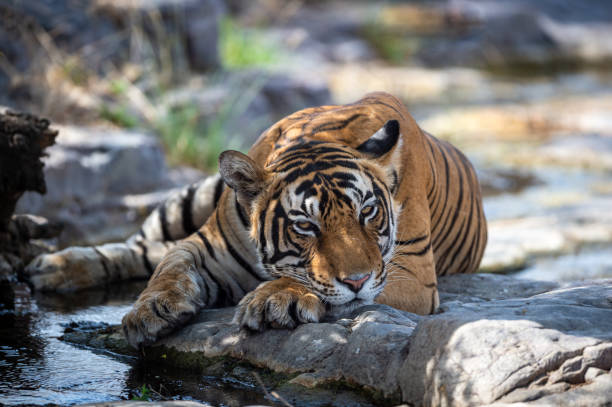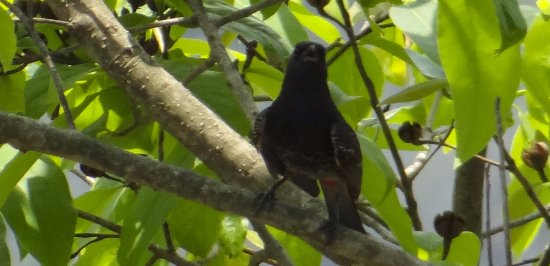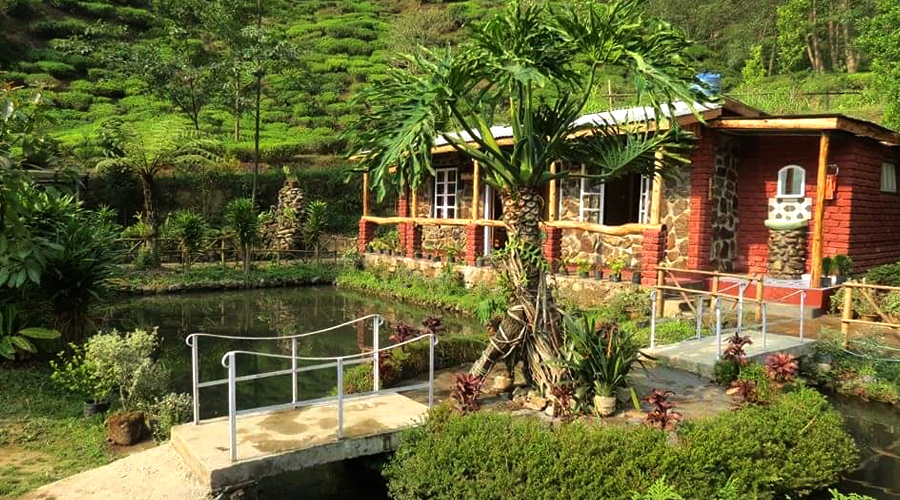Overview:-
Tigers are known to move out of areas in an attempt to carve out their own territories. What was however insightful and also satisfying for wildlife managers at the Panna National Park was the park’s turnaround. From a reserve without any tigers in early 2009, it had turned into hub from where tigers had started spreading out to neighbouring habitats, a phenomenon crucial for the survival of healthy tigers, especially since big cat habitats had become fragmented.
Panna National Park was reported tiger-less by December 2008 and a tiger reintroduction programme was initiated in March 2009. The first tigers brought into Panna included a tigress each from Bandhavgarh and Kanha and a tiger from Pench. Eight years after the reintroduction programme, the reserve currently has about 35 tigers, some of which are radiocollared.
Former field director of Panna Tiger Reserve, R Sriniwas Murthy, IFS, conducted a research based on photographs available from camera traps at both reserves and concluded on the basis of unique markings that the tiger assigned the call sign T 71 in Bandhavgarh is none other than the tiger P213-21 from Panna National Park. P 213-21 is claimed to have migrated to Bandhavgarh from Panna through this corridor.
The Park is open for visitors from 16-October to 30-June (dates may get changed According to rainy season by Forest Department).
An hour long boat ride offered by the park authorities is a good option to catch a glimpse of water predators and other animals around the lake.
Elephant rides are also offered in morning game drives.
On every Wednesday, park remain closed for evening safari round.
Dominant flora
Major forest types are dry mixed forest, Dry Deciduous forest, riverine, open grasslands, open woodlands with tall grasses and thorny woodlands.
Trees – Tectona grandis, Diospyros melanoxylon, Madhuca indica, Buchnania latifolia, Anogeissus latifolia, Anogeissus pendula, Lannea coromandelica, Bosswelia serrata etc
Shrubs – Lantana camera, Grewia sp., Nyctanthus arbortristis, Ixora sp., Zyziphus mauritiana, Zyziphus oenoplea, etc.
Grasses – Apluda mutica, Themeda quadrivalvis, Meteropogon contortus, Arishtida sp. etc.
Dominant fauna
Mammals – Tiger, Leopard, Chinkara, Nilgai, Hyena, Jackal, Rhesus monkey, Indian deer, Chital, Chausingha, Sambar, Nilgai, Chinkara , Wild dog, Wolf, Hyena, Cats etc
Birds – Long Billed Vulture, White Backed Vulture, Himalayan Griffon Vulture, Egyptian Vulture, Eurasian Vulture, Paradise Flycatcher, Pond Heron, White-necked Stork, Honey Buzzard, Slaty-headed Parakeet, Peafowls, Spotted Doves, Bare-headed Goose, Lark, Pipit, Minivets, Partridges, Peregrine Falcon, Lesser Adjutant, Black drongo, Pied Myna, Bulbul, Indian Baya weaver, Crow Pheasants, Cuckoo, Kingfishers, Indian Roller etc.
History:-
In past, Panna National Park was private hunting preserve of erstwhile rulers of Panna, Chhatarpur & Bijawar states.
In 1975, Gangau wildlife sanctuary was created by comprising North & South Panna forest division. In year 1978, Gangau sanctuary was extended by inclusion of Chhatarpur Forest Division.
It was declared a National park in the year of 1981. Panna National park was declared as 22nd Tiger Reserve of India and the 5th in Madhya Pradesh in the year of 1994.
The area of Panna also included some of the major parts of the former Gangau Wildlife Sanctuary which was created in the year 1975.
It is notable that by 2009, the entire tiger population had been eliminated by poaching with the collusion of forest department officials.
In the year of 2009, Mr. R. Shreenivasa Murthy, IFS as field director of Panna Tiger Reserve initiated the task of reintroducing tigers into the park.
In collaboration with WWF and PATA, Murthy introduced two tigers to Panna, one from Bandhavgarh and the other from Panna Tiger Reserve with intricate scientific inputs.
Two female tigers (coded T1, T2) were relocated there from Bandhavgarh National Park and Kanha National park in March 2009. However, the last male tiger had already disappeared. A committee to look into the disappearance of the tigers was formed.
Itinary:-
How to reach:-
By Air – Nearest airport is Khajuraho airport, about 27 Km from the Panna National Park. Khajuraho airport is well connected by road to Panna National Park.
By Rail – Nearest railway station is Satna railway station, about 70 Km from the Panna National Park. Satna railway station is well connected by road to Panna National Park.
By Road – Panna National Park is well connected to Major Cities and Places by road network. There are a number of government and privately operated vehicles that go to Panna National Park at frequent intervals.
Number of days:-
Do’s & don’ts:-
- Early mornings and late afternoons are best suited for visiting the forests and sighting of animals.
- Small groups are ideal. While going inside the forest, taking a guide is compulsory.
- Carry drinking water
- Do not disturb or tease animals. Respect animals and their habitats.
- Drive slowly (20 km/hr) and do not blow horn. In the forest , animals have the right of way.
- Refrain from smoking or lighting of fire.
- Do not carry any firearms.
- Radio and tape recorders are better left behind. Enjoy the music of the forest.
- Use the designated dustbins for throwing waste Carrying plastics and other non-degradable material is prohibited.
- Do not get out of vehicle at places other than the designated area.
- Visitors are advised to avoid using perfumes and scented oils as these might attract honey bees.
- Please consult your guide for what to see when and where.
- Park Management has the right to close the Reserve any time for management objectives.
- Offences in the Park are dealt in accordance with Wildlife (Protection) Act 1972.
Climate:-
Winter – November to February
Summer – March to Mid-June
Monsoon – Mid-June to October
Temperature – Maximum – 45o C
Minimum –5o C
Average rainfall – 1100 mm
Season:-
The best time of the year to visit the Panna National Park is between the months of November to Jun



